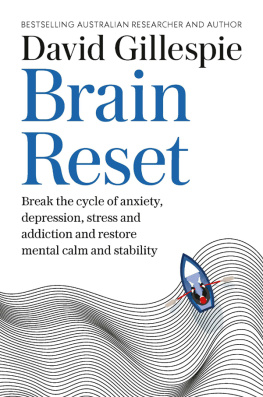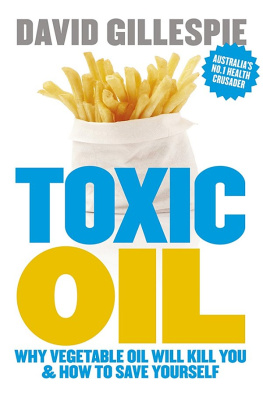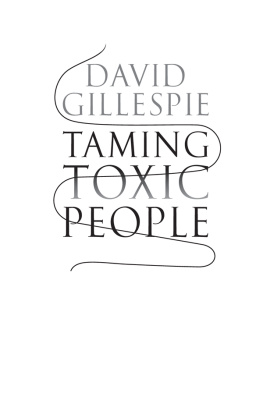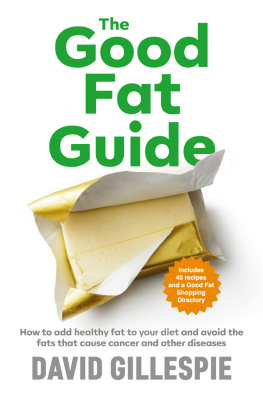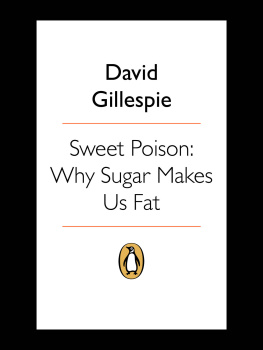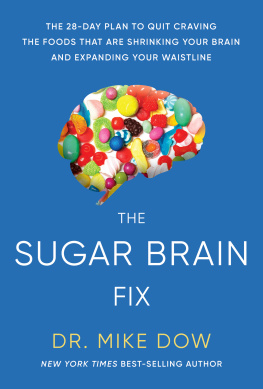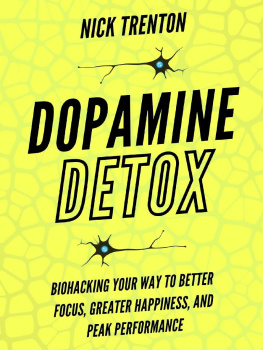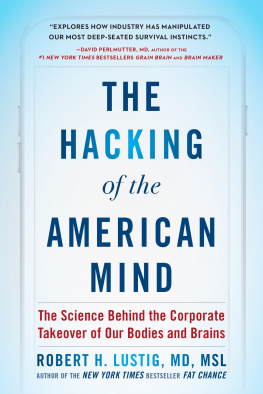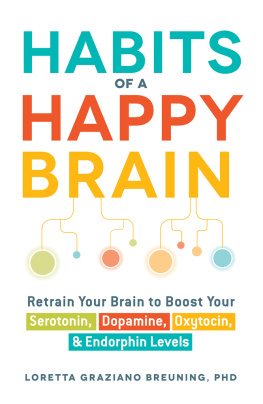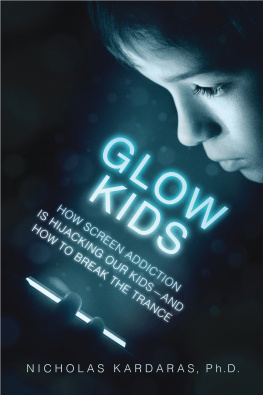ABOUT BRAIN RESET
Anxiety, depression and addiction are the scourge of modern-day living. How are they linked? How do we beat them?
According to bestselling author and researcher David Gillespie, we are more addicted than ever before, which is playing havoc with our dopamine levels. This is fuelling epidemic-like levels of depression, anxiety and stress.
Gillespie reveals a large and robust body of research that shows how addictive activities, such as screen use, sugar consumption, drinking, gambling, shopping and smoking, spike our dopamine levels. This, in turn affects our brains ability to regulate our mood.
The good news is that we can break the cycle to make things better. There are myriad root causes of mental illness, many of which are beyond our control; David argues that it makes sense to tackle the thing that is within our control our see-sawing dopamine levels.
Packed with cutting-edge research and practical advice, Davids latest book arms us with the tools we need to break our addictions, conquer uncertainty and reset our brains.
Also by David Gillespie
The Sweet Poison books
Big Fat Lies
Free Schools
Toxic Oil
Eat Real Food
The Eat Real Food Cookbook
Taming Toxic People
Teen Brain
The Good Fat Guide

For Lizzie, Anthony, James, Gwen, Adam, Elisabeth and Fin.
C ONTENTS
I NTRODUCTION
If I were to call you an addict, I doubt youd take it as a compliment. Addicts are nasty people. They steal, they cheat and lay unconscious in the gutter, oblivious to the world around them. Am I right? Yet, in the sense I will use that word in this book, you probably are an addict.
You probably wouldnt be too keen on me describing you as having a mental illness either. But according to the latest statistics, if you are standing in a room with four other Australians, one of you currently has a mental illness such as anxiety or depression, and two and half of you will, at some point in your life. It is even worse for younger people. More than one in four people aged 1624 currently suffer a mental disorder. Between 2005 and 2019, depression in the US in people under 25, the age group most easily addicted, increased by 73 per cent. One in eight US teens is depressed and twice that many suffer from anxiety. The Australian statistics are similar. Those numbers tell us that every family is in some way dealing with mental illness.
This is a book about how addiction, anxiety and depression are all part of the same spectrum. It is a book about mental health but it is not an attempt to explore the vast universe of mental illness; just a very important part of the equation. It is a detailed look at the way seesawing dopamine, caused by stress, uncertainty and addictive behaviours (smoking, drinking, gambling, screen use, eating sugar and many more) create imbalances in our brains. This in turn causes anxiety and depression. This matters a lot because it is rapidly creating an epidemic of mental illness the likes of which we have never before experienced. If we do not stop it, it will have disastrous consequences for each of us and our communities.
This is not to say that addiction or stress causes all mental illness. Like all human disease states, there is an underlying level. The power of sexual reproduction continuously recombining our DNA is that every one of us has a different propensity to any given disease to the person next to us. Some people can drink 50 cans of Coke a day and live to 127. Some people put on 400 kg merely by reading the word Coke in the preceding sentence. We are all different. What we can say with confidence is certain factors take disease states from background noise into population-wide epidemics. Thats what sugar consumption did for type 2 diabetes when it went from a non-disease in the 70s to affecting one in ten of us now. And it is what addiction and stress is doing to our mental health.
I am not a doctor. I am a researcher. I write about evidence with the singular motivation of providing you (and me) with information that helps us make better choices about our health. I firmly believe that knowledge gives us the power to change our lives for the better. There are many very large, very rich companies making very good money out of keeping that knowledge from us and keeping us addicted.
Because I have no relevant qualifications, I really have to know my stuff. I am very aware that my lack of formal training in the area means anything I say is open to criticism. This is how it should be, but this important reality forces my research to be more thorough, my references more current and my conclusions more defensible. My outsiders view allows me to connect silos of knowledge where the evidence says it is necessary. The only relevant skill I bring to the table is knowing nothing about the area. This means I cant accept a fact until I see the evidence. I cant operate on the basis of this is what my lecturer told me or this is what everyone knows to be true. Everything you are about to read is referenced. You can read all of it in the original journals. It is all there for everyone to see, but nobody is laying it out for us ordinary people in a way that makes any sense.
I have researched sugar, education, seed oils, psychopathy and teenage addiction and, as disparate as they are, a common theme has consistently emerged. There is always someone who will try to profit from human vulnerability. It could be the private school network pressing parents status anxiety button. It could be the processed food industry adding sugar to everything to increase sales. Or it could be Facebook harvesting our need to be liked.
When it comes to your brain there are loads of people fighting for your neural real estate. There is a reason the processed food, alcohol, gambling, social media, tobacco and pharmaceutical industries account for the lions share of our business landscape and they are just the legal addictions. And they dont stop at addicting individuals either. They make sure our leaders are addicted to their money. Our governments believe they would struggle without the rivers of gold generated from taxing our addictions. For all the nice feel-good campaigns about mental health and addiction, there is a very strong financial undertow pulling all of us in the other direction.
Addiction is not just messy drunks, coke-heads or junkies. The biochemical reality is we can become addicted to many things that are much more subtle and that are so socially acceptable, wed happily give them to a toddler. In 2009, an advertising campaign kicked off on the side of London buses that said, Nice People Take Drugs in large bright red letters. The campaign was paid for by a charity campaigning for the decriminalisation of drugs. It was immediately banned and removed. The UK was not ready to hear that nice people are addicts too, and things have not changed much since then. Denial is one of the first signs of addiction. It is a reflexive defensive mechanism aimed at keeping the addiction alive and hidden from view. Thats worth remembering as we look at the nature of everyday addiction.
Addiction is a loss of self-control when presented with potential rewards. Our brains operate a biochemical reward system to make us get off our bottoms and do stuff that keeps us alive long enough to produce the next generation. Without it, we wouldnt get out of bed, we wouldnt eat even if food was put in front of us, we wouldnt go to the trouble of meeting other people and we certainly wouldnt bother with getting to know them well enough to have children with them. This same system keeps us safe from danger by providing us with the motivation to run away or stand and fight.

